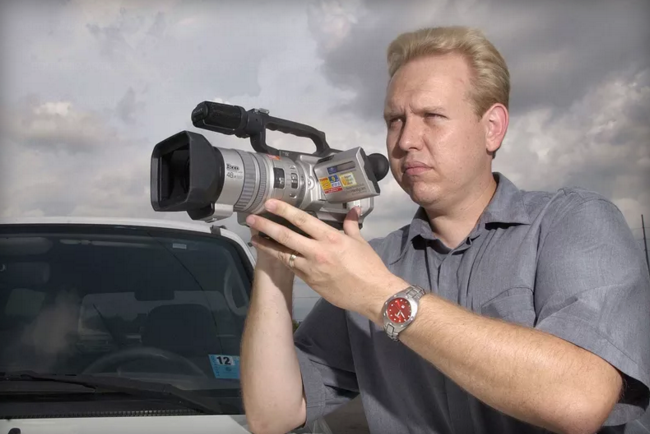Month: April 2016
Saturday assorted links
1. Which are over- and underrated dog breeds?
2. The newly unveiled painted portrait of Bernanke in the Fed. And Clickhole explains Bitcoin (short video, funny).
3. Laser-cloaking device could help hide us from aliens.
4. I hadn’t known that Zika had its first recorded outbreak on Yap island, where they use stone discs for money. NYT link, here is Wikipedia.
5. Interviewing Acemoglu about the Post Office.
6. Wikileaks on the IMF and Greece. No huge revelations, but lots of egg on face, and a caution looking forward around the time of the Brexit vote.
7. Historian and economic historian William L. O’Neill has passed away.
The drone wars sex workers culture that is Oklahoma advertising markets in everything
A sex worker in Oklahoma who was filmed using a quadcopter by a self-described “video vigilante” has pleaded guilty to a lewdness charge. According to a report from BBC News, the woman was sentenced to a year in state prison for the misdemeanor, although the case is still pending against her alleged client.
The encounter between the two was filmed by drone pilot Brian Bates, a known figure in Oklahoma City who describes himself as a “video vigilante.” Bates has long used video cameras to capture footage of alleged sex workers, which he uploads to his YouTube channel and his website, JohnTV.com, earning money through ad revenue in the process.
Here is the full story, the photo is of Bates, who because of a famous musical does not live in the most obscure state.
I thank a loyal MR reader for the pointer. And here is the Roam-E-Selfie drone.
Addendum: It is worse than you think. In the comments Jason Bayz alerts us to this story:
FEBRUARY 9–An Oklahoma man who has gained national exposure for his “video vigilante” campaign to expose street prostitution in his hometown was arrested yesterday for allegedly paying hookers to ensure that they serviced customers in an area where he could easily film the illicit trysts.
According to the below Oklahoma City Police Department report, Brian Bates, 34, orchestrated the public encounters so he could peddle the resulting videotape to media outlets (some of Bates’s surveillance tapes are offered for sale on his web site).
In his dealings with prostitutes, Bates was choosy, investigators contend.
For example, if a john was a “regular,” Bates asked prostitutes to give “specific signals” so he would know not to bother rolling tape. Investigators also noted that, like any good auteur, Bates “gave direction to the prostitutes on how to complete the act with a high probability of success,” as well as tips on how to spot an undercover cop.
Bates was hit with a felony pandering charge and a misdemeanor count of aiding in prostitution. The pandering rap, which is usually reserved for pimps, carries a minimum two-year jail term, and a maximum of 20 years in the stir.
Jason wins the internet today!
Why hasn’t economic progress lowered work hours more?
Here is a 42-minute video of a talk I gave on that topic at Duke University recently.
I start with Keynes’s prediction that we will be working 15 hours a week by 2030 and ask why it doesn’t seem to be coming true. Along the way, I consider the dominance of the substitution effect over the income effect for labor supply, and ponder why we don’t all have more sex. I conclude that progress is real rather than illusory, and we are not all caught up in a destructive rat race.
A paper on the same is forthcoming.
The case for a belief in free will
The paper title is Believing there is no free will corrupts intuitive cooperation, and the authors are John Protzko, Brett Ouimette, and Jonathan Schooler. The abstract is this:
Regardless of whether free will exists, believing that it does affects one’s behavior. When an individual’s belief in free will is challenged, one can become more likely to act in an uncooperative manner. The mechanism behind the relationship between one’s belief in free will and behavior is still debated. The current study uses an economic contribution game under varying time constraints to elucidate whether reducing belief in free will allows one to justify negative behavior or if the effects occur at a more intuitive level of processing. Here we show that although people are intuitively cooperative, challenging their belief in free will corrupts this behavior, leading to impulsive selfishness. If given time to think, however, people are able to override the initial inclination toward self-interest induced by discouraging a belief in free will.
I would say that we need a large swathe of society to believe in ideals of free will and individual responsibility, even though such concepts are not entirely faultless from a metaphysical point of view. For a given thinker, it is worth asking whether he or she adds to or takes away from that social belief. For some writers, the concepts of individual blame and responsibility apply only to their intellectual adversaries!
For the pointer I thank Ben Southwood.
A mass email from Andrew Sullivan
Here are some key parts:
This email is to let you know that I’m going back to long-form journalism, as I hoped to, at New York Magazine, edited by the incomparable Adam Moss (with whom I’ve worked, on and off, since the late 1980s). I start today and am already working on an essay on Trump. I’ll also be blogging the Democratic and Republican conventions – two discrete, unmissable moments for bloggery in real time. I know, I know. But if I keep the blogging restricted to two bouts of four days each, I’m hoping I won’t relapse.
My other news is that I’ve also committed to two new books. The first, with the working title of “Keeping Faith,” is a spiritual memoir and theological argument about the future and meaning of Christianity in the 21st Century. The second, called “Thinking Out Loud,” is a collection of my essays and reviews and posts over the last thirty years. I’m excited to be published by Simon and Schuster, with Ben Loehnen as my editor. I’ll keep you posted as these projects unfold.
The criticism of Trump which few will utter
It is sad to see so many people, including those on the Left or in the Democratic Party, criticize the idea of a Trump presidency without ever uttering the phrase: “No man or woman should have so much political power over others.” I agree with many of the moral criticisms of Trump as a leader, but don’t let them distract you from this broader truth.
It is strange but instructive how many Democratic criticisms of Trump circle back into criticisms of other, earlier, and now often irrelevant Republicans. That is simply a language of attack they are more comfortable with.
The good news, if that is what one should call it, is that the best criticisms of Trump involve the concept of individual liberty and freedom from arbitrary legal authority and pure presidential discretion. The bad news is that so few intellectuals have the relevant ideological vocabulary in that regard.
Friday assorted links
1. Does chess fit into celebrity culture? (NYT) And an assessment of Karjakin vs. Carlsen. I say 70-30 odds for Carlsen.
2. Some of Hadid’s best buildings. And here is a new and interesting book by Despina Stratigakos, Where are the Women Architects?
3. What Dube said in full on the California minimum wage.
4. Can a young university be a world-leading university?
5. Do children now spend less time outside than the average prisoner? (speculative)
Luxury dental markets in everything
Most people dread going to the dentist’s for a check-up.
But the London-based dental boutique YourDentist.co.uk is changing dentistry’s reputation by offering nervous patients a luxury experience that includes a Bentley car service, a concierge lounge, and accommodation in 5-star hotels.
The high-end practice — which claims to be one of the world’s only 7-star dental boutiques on its website — was established in 2013, and moved to its flagship location on Harley Street in 2015.
The surgery also partners with clinics across the UK that “fit within a luxury private practice environment,” and considers its business model as “very similar to Uber or Airbnb.”
The story is here, via the excellent Samir Varma.
My favorite things Idaho
OK, OK, I have decided Nebraska is not the most obscure state. How about Idaho? What can we can think of which is noteworthy from Idaho? More than you might expect, here goes:
Author: A variety of writers have lived in or passed through the state for a few years’ time, including Ernest Hemingway and Edgar Rice Burroughs. A few of Hemingway’s short stories I admire very much.
Poet: Ezra Pound, yes I know he left at age three. Still, he was from Idaho.
Native American sage and explorer: Sacagewea. Did you know that her portrait design on the dollar coin is not in the public domain?
Economist: Lant Pritchett was raised in Boise.
Popular music: Built to Spill.
Composer: La Monte Young, The Well-Tuned Piano is one of the better pieces of contemporary classical music, still highly underrated. Here is a two minute sample from what is more or less a five hour work.
Artist: Matthew Barney, twelve years in Idaho. Here is an interview.
Director: David Lynch, who spent formative years in Boise. Here is a good recent piece on how powerful Blue Velvet still is. Is it fair to say this state has produced some pretty weird stuff?
Actress: Lana Turner, and Patty Duke just passed away. Mariel and Margeaux Hemingway also have claims.
Movie, set in: The only one I can think of is…My Private Idaho.
Other notables: Philo T. Farnsworth invented television, more or less, and he also worked on nuclear fusion.
The bottom line: Per capita, this isn’t bad, even if not much of it is associated with Idaho. I’ll have to look harder for the most obscure state. It might be Idaho, but it doesn’t deserve to be Idaho. So perhaps Delaware, Wyoming, and Rhode Island will come under the microscope soon.
I thank Roy LC, Marcus, and kb for essential pointers here.

